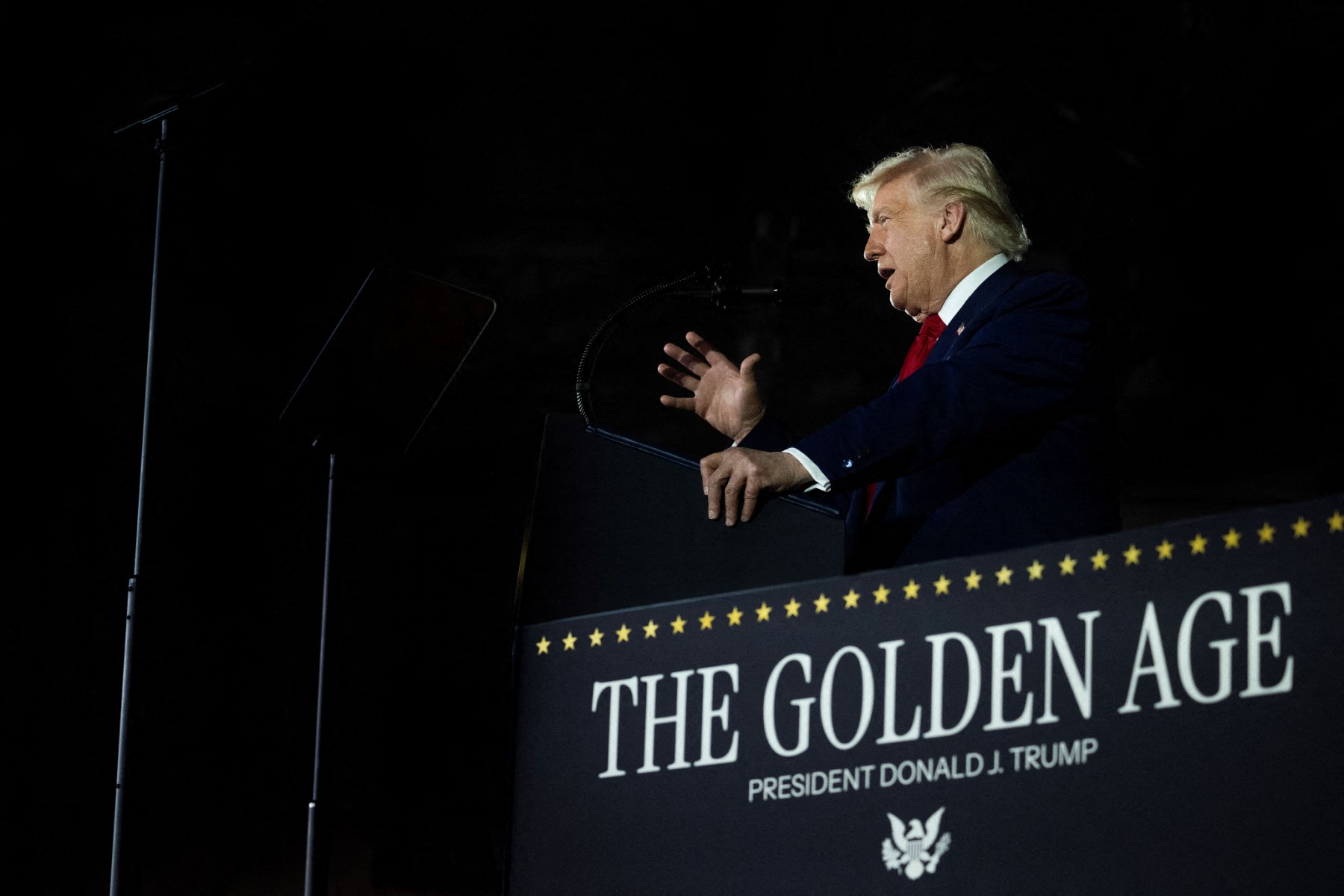US President Donald Trump moved Tuesday to soften tariffs on automakers, sparking cautious optimism in an industry that has been on tenterhooks as it awaits details on the fast-evolving policy.
Trump signed an executive order to limit the impact of overlapping tariffs on automakers. He also released a proclamation that gives the industry a two-year grace period to move supply chains back to the United States and reduce "American reliance on imports of foreign automobiles and their parts."
Automakers have been among the hardest-hit sectors by Trump's multi-pronged assault on free trade.
"We just wanted to help them during this little transition," Trump said. "Short term."
Outlook is down for Germany's major brands
Europe's largest carmaker Volkswagen said Wednesday that first quarter profit plunged due to higher costs as it warned of muted business for the rest of the year in the wake of trade tensions.
Net profit fell 40.6 percent in the first three months of the year to hit €2.19 billion, even as revenue rose three percent to reach €77.56 billion.
The 10-brand group, which apart from its namesake includes Audi, Skoda and Porsche, had warned earlier in April that one-off costs of €1.1 billion would weigh on its result.
These included restructuring costs at its troubled software unit as well as EU fines for selling too many polluting vehicles, Volkswagen said.
For the rest of the year, the carmaker said that it expected business "towards the lower end" of its guidance, citing challenges including increased competition, more stringent emissions regulations and trade tensions.
North America took just over 11 percent of Volkswagen vehicle deliveries in the first quarter, making it the firm's third most important region after western Europe and China.
Mercedes-Benz also announced Wednesday that first quarter net profit tumbled as it struggled with weak demand in China and warned that US tariffs clouded the year ahead.
Grace period
Besides a 25 percent tariff on finished imported cars, the industry has also been affected by Trump's 25 percent tariff on steel and aluminium. Automakers are also set to face new tariffs on foreign auto parts expected to take effect on May 3rd.

Trump's new policy means that a company wouldn't face both a 25 percent levy for an imported vehicle and 25 percent on steel or aluminium; the importer would pay the higher of the two levies, but not both, a Commerce official said.
The other change is that companies that import parts for vehicles assembled in the United States would be able to offset 3.75 percent of a vehicle's list price in the first year and 2.5 percent in the second year.
That modification is designed to give companies two years to move supply chains to the United States.
Automakers told the Trump administration there would be "dramatic increases in production... as the payoff to America" from a two-year grace period, the Commerce official said.
Roughly half the cars sold in the United States are assembled within the country, with another 25 percent coming from Mexico and Canada and the remainder from a broader swath of nations including Germany, Japan and South Korea.
Automakers have already announced some investment decisions in light of the tariffs.
But analysts have cautioned that Trump's approach will not incentivize multi-billion-dollar investments if the industry does not believe the tariffs will last throughout Trump's administration and beyond.
Nissan, Honda and Volvo have been among the foreign automakers that have announced steps to boost investment in the United States.
READ ALSO:

Comments